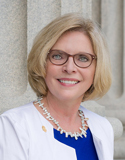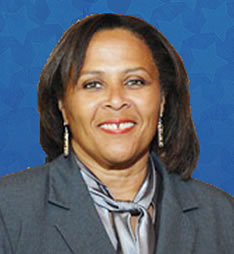
By Lily Levin | Two of South Carolina’s women senators want to move the nagging fight over abortion away from the General Assembly. It’s time for the issue to be on the ballot, they say.
S.C. Sens. Margie Bright Matthews, D-Colleton, and Katrina Shealy, R-Lexington, who were among five women senators who filibustered a 6-week abortion ban when it was in the Senate, say that instead of having elected officials call the shots, something else is needed.
“The most fair way to do this [abortion decision] would be to put it to the people,” said Shealy. She and Matthews say they are planning to propose legislation next year that would give the abortion decision to the public.


But Shealy noted that the proposal — and the fight for abortion rights in general— will be an “uphill battle,” given the priorities of the legislature.
“These legislators … want to have more babies, but none of them are willing to step up to the plate and be foster parents,” Shealy said.
Nor will they provide assistance for children born into impoverished families, Shealy continued. “My meals in school bill … has been held up for a year, because [the legislators] think everybody can pay.”
Matthews emphasized her colleagues in the Senate would rather pass “one iteration or another” of anti-abortion laws than even try to address hate crimes.
“It was easier to get a referendum on the lottery issue than it is on the abortion issue. This is where we are,” Matthews admitted.
If you are seeking an abortion
Meanwhile, South Carolina women are grappling with the realities of the state’s new abortion ban after six weeks – a time when most women don’t know they’re pregnant. Last month, the state Supreme Court reversed a January decision on a 2021 abortion ban when it upheld a new ban passed earlier this year.
“The first thing [someone seeking an abortion] needs to do is call us [Planned Parenthood] and get in very quick” to make an appointment, said Vicki Ringer, director of public affairs for Planned Parenthood South Atlantic (PPSAT), regardless of whether they can initially afford it. The earlier the interaction is, the more alternatives someone might have.
Justine, director of engagement at the Carolina Abortion Fund (CAF), who asked that her full name not be used, said that even after the six-week ban in S.C. went into effect, the organization’s mission “remains the same — to serve North and South Carolina callers.”
The scheduling can be “overwhelming,” Justine added, which is why CAF offers to counsel patients through it — alongside financial assistance with the procedure and everything it necessitates, including child care and travel outside of the state.
Location, especially in rural areas, also plays an important role in access to care. Fourteen of 46 counties in South Carolina don’t have an obstetrician gynecologist (OB-GYN), said Ringer. Ringer.
Either way, “there will be very few pregnant women who want an abortion who can get one in South Carolina,” she said, “so that will mean that we will have to help navigate other states for them.”
She said North Carolina is an option for those under 12 weeks of pregnancy, and Planned Parenthood providers might refer patients who are further along to states with looser restrictions, like Virginia, Illinois, Maryland, Washington D.C., and New York.
Many patients, Ringer said, are seeking an abortion because of “a fetal anomaly that has just been diagnosed with their 20-week scan,” but it all depends on their ability to travel out-of-state — and what they can afford.
Planned Parenthood and the Palmetto State Abortion Fund are two groups in South Carolina that can help with these costs. Typically, Planned Parenthood will give a patient a gas card, an Uber voucher or a bus ticket to a clinic in another city or state, Ringer said. She noted that Planned Parenthood does not cover the cost of plane tickets.
Another type of abortion available is the “self-managed abortion,” which is an at-home medication abortion done without a medical professional, sometimes referred to as “Plan C.” It is illegal under South Carolina law, despite the fact that, according to Ringer, “it has been used safely for 23 years” and “has less side effects than Tylenol.”
A Charleston City Paper article in 2022 referenced in detail the benefits and risks of a platform called PlanCpills.org, which “provides information on obtaining abortion medication in the U.S. and through online, international pharmacies.”
CAF has seen an extremely high volume of callers recently, according to Justine, the engagement director.
Watch out for misinformation
In times of need, callers might be more vulnerable to misinformation. Justine warned against the facade of Crisis Pregnancy Centers (CPCs), which are “organizations that seek to intercept women with unintended pregnancies who might be considering abortion,” according to a study published by the American Medical Association Journal of Ethics. But they can look like genuine abortion providers. “They have one goal,” Justine said. “And the goal is to dissuade you from seeking that [abortion] care,” she said.
According to a Crisis Pregnancy Center map, there are 35 statewide, in comparison to only three abortion clinics in South Carolina.
But the need for services always persists — even after restrictive legislation.
“People have been having abortions for as long as there have been people,” said Justine.
Levin is a reporter with the Charleston City Paper, where this story first appeared. Have a comment? Send to: feedback@charlestoncitypaper.com


